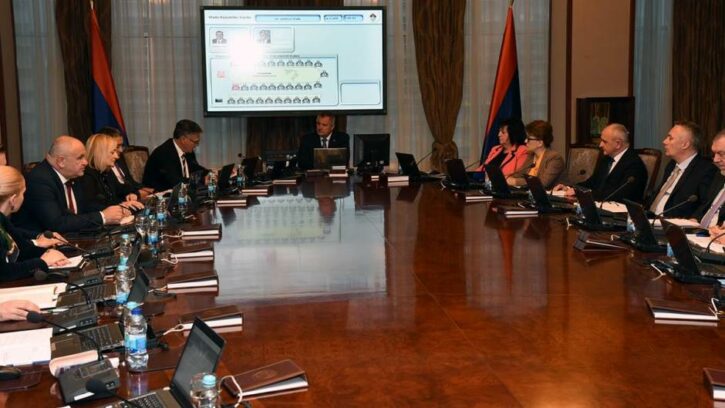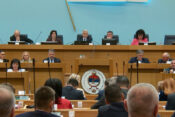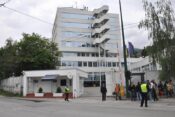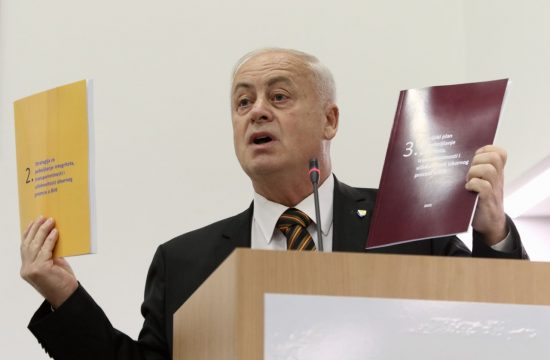
The government of Republika Srpska (RS), Bosnia’s Serb-majority entity, has on Thursday tasked all RS ministries to analyse and identify all competencies which were transferred to the state level in an “unconstitutional way” in an effort to reverse numerous post-war reforms in Bosnia.
The session came after lawmakers in the semi-autonomous entity adopted a set of conclusions in a document called ‘Unconstitutional Transformation of the Dayton structure of Bosnia and Herzegovina and impact on the position and rights of the RS’, which was initiated by the ruling Bosnian Serb party, the Alliance of Independent Social Democrats (SNSD).
After the 1995 Dayton Peace Agreement, which includes the country’s Constitution, Bosnia’s two entities – the Federation (FBiH), which occupies 51 percent of the country and is mostly populated by Bosniaks and Croats and Republika Srpska which has 49 percent of the territory – had their own institutions such as armies, tax and judicial systems.
Over the years the state Parliament melted those into joint, state-level systems.
SNSD leader and Serb member of the tripartite Presidency, Milorad Dodik, argued that that too many authorities which were given to Republika Srpska according to the Dayton Agreement were transferred to the state-level government. He said this represents a violation of Bosnia’s Constitution, although Bosnian Serb lawmakers in the country’s parliament have also voted for the reforms.
Dodik, who has often advocated for the secession of the RS from Bosnia and Herzegovina, said that the reforms implemented after the war were carried out under pressure from international representatives who “manipulated with a fake compromise” while working in the interests of Bosniaks who prefer a centralised state.
He also asked lawmakers in the RS to, among other things, work toward abolishing the Office of the High Representative (OHR) – the international official tasked with overseeing the civilian implementation of the Dayton Agreement.
“The Government of Republika Srpska expresses readiness to begin talks with the Federation of Bosnia and Herzegovina (FBiH, the other semi-autonomous entity) in order to harmonise on adopting a Law on the Constitutional Court of Bosnia and Herzegovina, but also to reconsider the agreement expressed previously on the Law on Defence, the Law on Taxation and the Law on the High Judicial and Prosecutorial Council,” an RS Government statement said.
The RS Government also said it was necessary to work on a law on rehabilitation for all illegally deposed officials from Republika Srpska “who were deposed by decisions of High Representatives.”
Bosnia’s High Representative has a special set of powers – the “Bonn Powers” – which allow the official to fire officials or impose laws, among other things.






